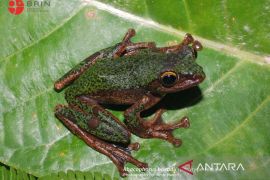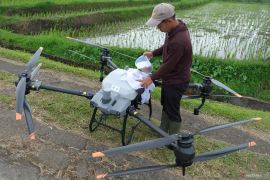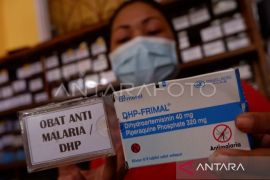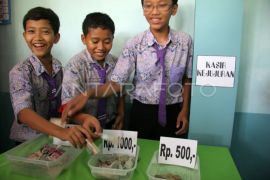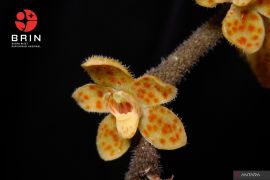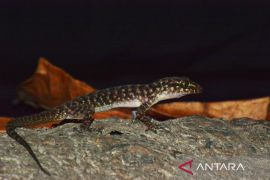The National Research and Innovation Agency (BRIN) has continued intensifying research on biological resources to support the actualization of the Golden Indonesia 2045 vision.
BRIN Deputy Head Amarulla Octavian noted in his office's statement received here on Monday that proper management and a sound understanding of the country's profound biological resources are vital to ensuring their sustainability so that future generations can realize the vision.
Octavian then remarked that his agency had managed to conduct research related to genetic engineering to study the molecular structure of living creatures.
"The development of such research is essential to determine the value of bioprospection of various biological resources that Indonesia stores," he stated.
Octavian underscored the need for genetic information to modify an organism to boost its quality, productivity, and resilience.
Speaking of productivity, Enny Sudarmonowati, a professor at BRIN's Center for Genetic Engineering Research, emphasized the importance of paying closer attention to the agriculture sector, which she deems crucial for realizing the Golden Indonesia 2045 vision.
She highlighted the need to address various issues hindering the sector's growth, such as the shrinking of agricultural areas, unfavorable productivity rates and nutritional quality of plants, and ineffective policies.
"These obstacles are coupled with climate change, pest invasions, and plant diseases," the researcher noted as cited from the statement.
To that effect, she remarked that the BRIN is currently developing omics technology to enable more efficient and accurate genetic engineering, which is needed to help Indonesia boost the quality and quantity of plants.
"Omics technology is regarded as a potential solution, creating a sustainable agricultural system in Indonesia and increasing food production, nutritional quality, and plants' resilience to climate change effects and environmental degradation," she remarked.
Sudarmonowati further stated that genomic technology, as part of omics, can be used to identify more productive and resilient gene variations and discover genes that influence a plant's responses to environmental contaminants.
Related news: Govt pursuing PAUD HI coordination for Golden Indonesia: official
Related news: Govt seeking to improve human resource quality: Hartarto
Related news: BRIN calls for agro-industry research to boost economic growth
BRIN Deputy Head Amarulla Octavian noted in his office's statement received here on Monday that proper management and a sound understanding of the country's profound biological resources are vital to ensuring their sustainability so that future generations can realize the vision.
Octavian then remarked that his agency had managed to conduct research related to genetic engineering to study the molecular structure of living creatures.
"The development of such research is essential to determine the value of bioprospection of various biological resources that Indonesia stores," he stated.
Octavian underscored the need for genetic information to modify an organism to boost its quality, productivity, and resilience.
Speaking of productivity, Enny Sudarmonowati, a professor at BRIN's Center for Genetic Engineering Research, emphasized the importance of paying closer attention to the agriculture sector, which she deems crucial for realizing the Golden Indonesia 2045 vision.
She highlighted the need to address various issues hindering the sector's growth, such as the shrinking of agricultural areas, unfavorable productivity rates and nutritional quality of plants, and ineffective policies.
"These obstacles are coupled with climate change, pest invasions, and plant diseases," the researcher noted as cited from the statement.
To that effect, she remarked that the BRIN is currently developing omics technology to enable more efficient and accurate genetic engineering, which is needed to help Indonesia boost the quality and quantity of plants.
"Omics technology is regarded as a potential solution, creating a sustainable agricultural system in Indonesia and increasing food production, nutritional quality, and plants' resilience to climate change effects and environmental degradation," she remarked.
Sudarmonowati further stated that genomic technology, as part of omics, can be used to identify more productive and resilient gene variations and discover genes that influence a plant's responses to environmental contaminants.
Related news: Govt pursuing PAUD HI coordination for Golden Indonesia: official
Related news: Govt seeking to improve human resource quality: Hartarto
Related news: BRIN calls for agro-industry research to boost economic growth
Translator: Sean F, Tegar Nurfitra
Editor: Azis Kurmala
Copyright © ANTARA 2024





